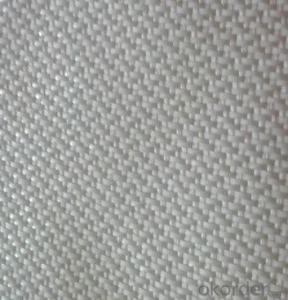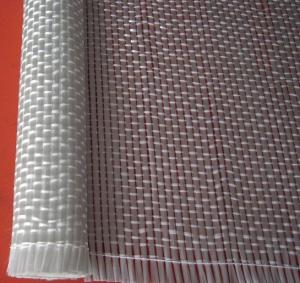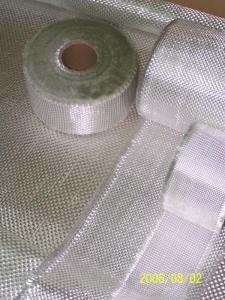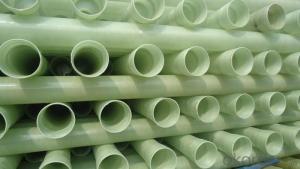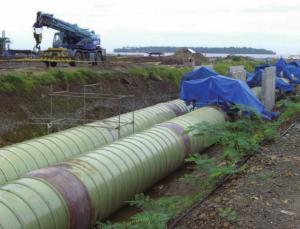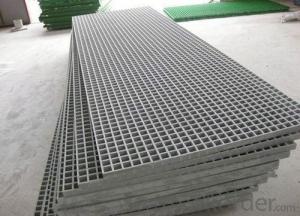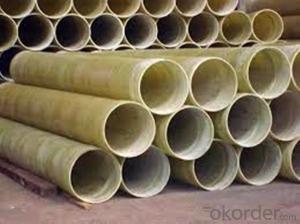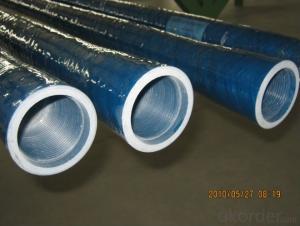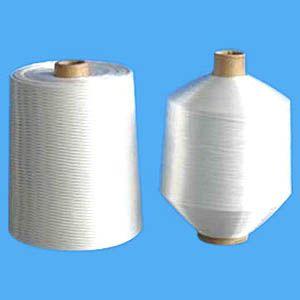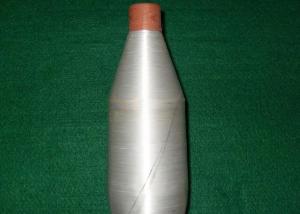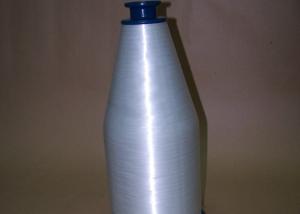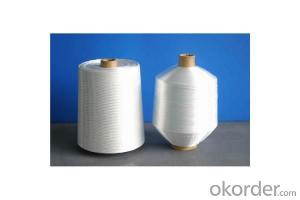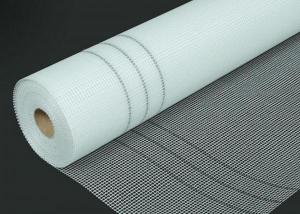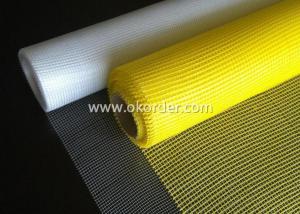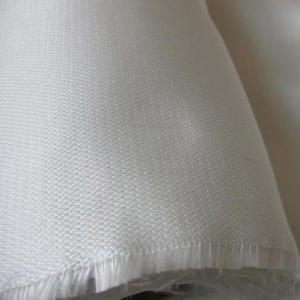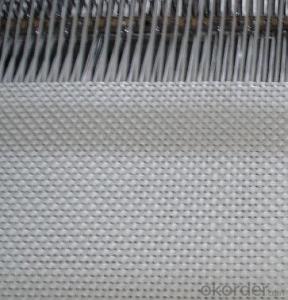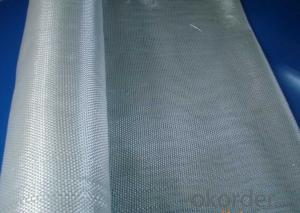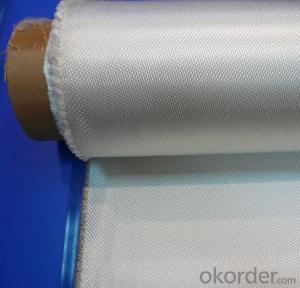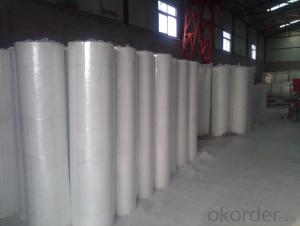Fiberglass Fabric of High Strength Top Quality
- Loading Port:
- Shanghai
- Payment Terms:
- TT OR LC
- Min Order Qty:
- 500 m²
- Supply Capability:
- 50000 m²/month
OKorder Service Pledge
OKorder Financial Service
You Might Also Like
Fiberglass Fabric of High Strength Top Quality
Fiberglass Fabric Introduction:
Fiberglass fabric is weaved by high quality fiberglass,as a kind of engineering material,which is
many excellent characteristics:
flame-resisting,corrosion resistant,high strength,heat resistance.stable structure,good chemical resistance,durability.
Fiberglass Fabric Features:
Warp and weft yarns are parallel arrangement as flat situation, with uniform tension;
Fiber is aligned with large consistency, stable and easy operation;
Good moldability, fast and complete wet out in resins, resulting in high productivity;
Good transparency and high strength of composite products.
Fiberglass Fabric Specification:
mark | Fiber consistency(ends/ cm) |
Area weight (g/ m2) |
Thick-ness (mm) |
Width (cm) |
Length (mm) | Breaking strength(N)≥ |
weave | |||
Warp direction | Weft direction | Warp direction | Weft direction | |||||||
EW200 | 16 | 12 | 200±20 | 0.2 | 90-130 | 300-1200 | 980 | 980 | ||
EW210 | 16 | 12 | 200±20 | 0.21 | 90-130 | 300-1200 | 1080 | 1080 | Twill weave | |
Plain weave | ||||||||||
EWR360 | 3.2 | 1.8 | 354±18 | 0.35 | 50-300 | 100 | 2000 | 2000 | ||
EW280 | 16 | 10 | 280±28 | 0.26 | 90-130 | 300-1200 | 1800 | 1800 | ||
EW300 | 14 | 10 | 320±32 | 0.3 | 90-130 | 300-1200 | 1500 | 1500 | ||
EW430 | 20 | 12 | 420±42 | 0.43 | 90-130 | 300-1200 | 2000 | 2000 | Broken twill | |
EWR136 | 10 | 10 | 136±13 | 0.136 | 100 | 200 | 850 | 850 |
Plain weave | |
EWR200 | 8 | 7 | 200±20 | 0.21 | 100 | 200 | 1200 | 1200 | ||
EWR400 | 3.6 | 3.2 | 400±30 | 0.4 | 100 | 50-100 | 2500 | 2500 | ||
EWR600 | 2.6 | 2.5 | 600±50 | 0.6 | 100 | 40KG | 4000 | 4000 | ||
EWR580 | 2.5 | 2.3 | 576±29 | 0.58 | 100 | 40KG | 3850 | 3850 | ||
EWR800 | 1.8 | 1.8 | 800±60 | 0.8 | 100 | 40KG | 4600 | 4600 | ||
Product Show
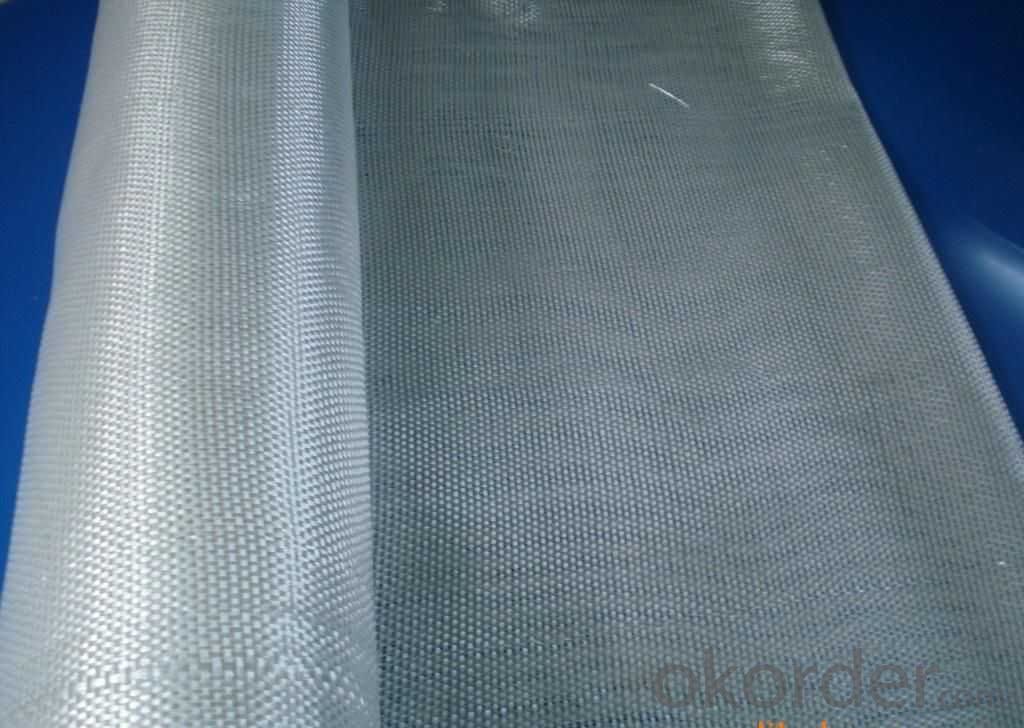
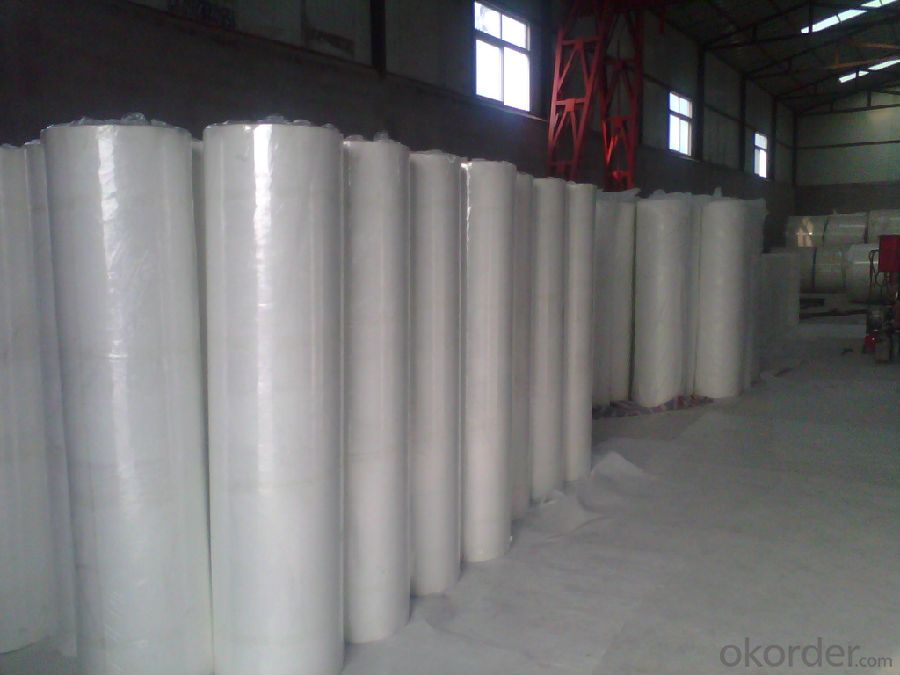
Fiberglass Fabric Usage:
E-glass woven roving is a schistose double faces reinforcement fabric that is weaved into from roving in directly.
E-glass fiber fabric (thin fabrics with thickness from 0.025 to 0.09mm) is suitable for electrical isolation mica product, wax cloth as the reinforcement materials.
E-glass woven roving applys to all kinds of polyester reinforcement system, (such as unsaturated polyester resin, vinylite,epoxy resin and phenolic resin.
E-glass woven roving is a high performance reinforcement material. It is widely used in hand lay-up and machinery processing products, (such as vessel, container, airplane and vehicle component, furniture, athletic facilities and other industry.
FAQ
1.Package of Fiberglass Fabric?
Fiberglass fabric is wound on a paper tube with inner diameters of 50. 8, 76 or 152mm. Each roll is wrapped in a plastic bag, then to be packed in a carton box. The rolls are to be horizontally placed.
Width (cm): 90, 100, 127
Length (m): 100, 200, 300, 400
2.Storage of Fiberglass Fabric?
Store rolls in a cool, dry location
Protect rolls from weather and other damage.
3.If sample available if needed?
We aim to offer our customer best Products&Service,samples are allowed if necessary.
- Q:Can fiberglass yarn be used in the production of textiles for extreme weather conditions?
- Yes, fiberglass yarn can definitely be used in the production of textiles for extreme weather conditions. Fiberglass is known for its exceptional strength and durability, making it an excellent choice for textiles that need to withstand harsh weather conditions such as extreme heat, cold, wind, or rain. The high tensile strength of fiberglass yarn ensures that the resulting textiles can withstand heavy wear and tear, making them suitable for use in extreme environments. Additionally, fiberglass yarn is resistant to chemicals, moisture, and UV radiation, further enhancing its suitability for extreme weather conditions. Its heat-resistant properties also make it ideal for applications where high temperatures may be a concern. Overall, fiberglass yarn offers a reliable and robust solution for producing textiles that can withstand the demands of extreme weather conditions.
- Q:How does the resistance to solvents of fiberglass yarn compare to other materials?
- Fiberglass yarn is known for its excellent resistance to solvents, making it a preferred choice in various applications where exposure to solvents is likely. Compared to other materials, such as cotton or nylon, fiberglass yarn exhibits superior resistance to solvents. This is primarily due to the chemical composition of fiberglass, which consists of a reinforced form of glass fibers. These glass fibers are composed of silica, a highly inert material that is less susceptible to chemical interactions with solvents. In contrast, materials like cotton or nylon may have a lower resistance to solvents. Cotton fibers, for example, are more prone to swelling or deteriorating when exposed to certain solvents, which can lead to a loss of strength or integrity. Nylon, although generally more solvent-resistant than cotton, can still be affected by certain solvents and may experience some swelling or degradation over time. On the other hand, fiberglass yarn's resistance to solvents allows it to maintain its strength, durability, and dimensional stability even when exposed to various solvents. This makes it highly suitable for applications that involve contact with solvents, such as chemical processing, insulation, filtration, or even in the production of composite materials. Additionally, its resistance to solvents also contributes to its ability to withstand harsh environmental conditions and chemical exposures, making it a dependable choice in industries where chemical resistance is crucial. Overall, fiberglass yarn surpasses other materials in terms of resistance to solvents, providing a reliable and durable solution for applications requiring such properties.
- Q:Is fiberglass yarn suitable for making electrical insulators?
- Yes, fiberglass yarn is suitable for making electrical insulators. Fiberglass is a versatile material that possesses excellent electrical insulating properties. It has a high resistance to electricity, making it an ideal choice for insulating applications. Fiberglass yarn can be woven into various forms such as sheets, tapes, or ropes, allowing it to be used in different electrical insulation applications. Additionally, fiberglass is also resistant to heat, chemicals, and moisture, which further enhances its suitability for electrical insulation purposes.
- Q:Is fiberglass yarn suitable for making window blinds?
- Yes, fiberglass yarn is suitable for making window blinds. It is a durable and lightweight material that can withstand exposure to sunlight and moisture, making it ideal for window treatments. Additionally, fiberglass yarn can be woven into various patterns and designs, providing versatility in creating blinds that offer privacy and control over light filtration.
- Q:Can fiberglass yarn be used in acoustic insulation?
- Acoustic insulation can indeed utilize fiberglass yarn. The exceptional sound absorption properties of fiberglass make it a favored material for this purpose. Fiberglass yarn can be skillfully woven into different shapes, like mats or boards, and employed as a component in acoustic panels or insulation materials. The yarn's fibrous structure effectively captures and absorbs sound waves, diminishing noise transmission and improving soundproofing abilities. Moreover, fiberglass exhibits fire resistance and durability, rendering it an appropriate option for acoustic insulation in buildings, industrial environments, or the automotive industry.
- Q:How does fiberglass yarn affect the chemical resistance of a product?
- Fiberglass yarn can significantly enhance the chemical resistance of a product. Fiberglass is a highly durable and corrosion-resistant material, making it an excellent choice for products that may come into contact with various chemicals. When woven into yarn form, fiberglass creates a strong and dense structure that provides a barrier against chemical substances. The yarn's composition helps to prevent the penetration of liquids and gases, reducing the risk of chemical reactions or damage to the product. Fiberglass yarn is also known for its high melting point, which allows it to withstand exposure to extreme temperatures without losing its structural integrity. This characteristic is particularly crucial when dealing with chemicals that may generate heat or require specific temperature conditions. Furthermore, fiberglass yarn is resistant to many common chemicals, including acids, alkalis, solvents, and oils. This resistance enables products made with fiberglass yarn to maintain their performance and integrity when exposed to such substances. It also extends the lifespan of the product, reducing the need for frequent replacements. In summary, the incorporation of fiberglass yarn in a product significantly enhances its chemical resistance. The durable nature of fiberglass, combined with its ability to withstand high temperatures and resist a wide range of chemicals, provides added protection and longevity to the product, making it suitable for various applications in industries such as manufacturing, construction, and automotive.
- Q:Is fiberglass yarn resistant to acids or alkalis?
- Fiberglass yarn boasts remarkable acid and alkali resistance. This can be attributed to its inorganic composition, primarily consisting of silica, which grants it formidable protection against chemical harm. Fiberglass yarn remains largely unaffected by acids like sulfuric acid, hydrochloric acid, and nitric acid, rendering it a dependable material for industries working with corrosive substances. Likewise, fiberglass yarn displays resistance to alkalis like sodium hydroxide and potassium hydroxide. Thanks to this ability to withstand acids and alkalis, fiberglass yarn finds suitability in a range of industries, including chemical processing, water treatment, and electrical insulation.
- Q:Can fiberglass yarn be used for making furniture?
- Indeed, furniture making can involve the utilization of fiberglass yarn. Renowned for its robustness, endurance, and resistance to deterioration, fiberglass yarn proves to be an exceptional option for the manufacturing of furniture. Whether employed for weaving or as a foundational substance in upholstery and padding, this material bestows structural reinforcement and augments the lifespan of furniture. Furthermore, fiberglass yarn can be amalgamated with other substances like resin or foam, fostering the creation of one-of-a-kind and groundbreaking designs. Due to its adaptability and capacity to endure extensive usage, furniture makers commonly opt for fiberglass yarn.
- Q:How does the elasticity of fiberglass yarn affect its handling?
- The handling of fiberglass yarn can be significantly influenced by its elasticity in various ways. Fiberglass yarn, which consists of glass fibers known for their strength and durability, can be greatly affected by its ability to stretch and return to its original shape when force is applied. To begin with, the elasticity of fiberglass yarn can simplify its handling during the weaving or knitting process. The yarn's stretchiness allows it to be pulled and manipulated without breaking, making it more forgiving for the user. This characteristic can be particularly advantageous when working with intricate or complex patterns that require frequent stretching and manipulation of the yarn. Moreover, the behavior of fiberglass yarn in terms of tension and sagging can be impacted by its elasticity. Yarn with higher elasticity will have a greater capacity to maintain tension, making it less likely to sag or lose its shape over time. This can be beneficial in applications where the yarn needs to endure continuous stress or weight without deforming. Additionally, the performance of fiberglass yarn in applications such as fabrics or composites can be influenced by its elasticity. In fabrics, the stretchiness of the yarn can provide comfort and flexibility, enabling the material to conform to the body's movements. In composites, the yarn's elasticity can contribute to the material's ability to absorb and distribute stress, enhancing its overall strength and resilience. However, it is important to note that the elasticity of fiberglass yarn has its limitations. Excessive stretching or overloading can lead to permanent loss of shape or even breakage. Therefore, it is crucial to consider the specific requirements and limitations of the project or application when selecting and handling fiberglass yarn.
- Q:How does fiberglass yarn perform in high-temperature environments?
- Fiberglass yarn is renowned for its outstanding performance in environments with high temperatures. This type of yarn is produced from glass fibers that can endure elevated temperatures without compromising their structural integrity or experiencing significant degradation. When subjected to high temperatures, fiberglass yarn demonstrates remarkable heat resistance, maintaining both its strength and dimensional stability. It does not melt or burn, making it an appropriate option for applications where fire resistance is of utmost importance. Moreover, fiberglass yarn possesses a low thermal conductivity, meaning it does not readily transfer heat, thus serving as an effective insulating material in high-temperature environments. Moreover, fiberglass yarn exhibits high resistance to chemicals, moisture, and UV radiation, ensuring its durability in various industrial settings. These outstanding properties make it an ideal material for applications such as insulation in furnaces, boilers, and ovens, as well as for manufacturing protective clothing, gaskets, and seals for high-temperature equipment. All in all, fiberglass yarn excels in high-temperature environments, offering dependable heat resistance, fire resistance, insulation, and durability. Its ability to endure extreme temperatures, combined with its other desirable characteristics, positions it as the preferred choice for numerous industrial applications.
1. Manufacturer Overview |
|
|---|---|
| Location | |
| Year Established | |
| Annual Output Value | |
| Main Markets | |
| Company Certifications | |
2. Manufacturer Certificates |
|
|---|---|
| a) Certification Name | |
| Range | |
| Reference | |
| Validity Period | |
3. Manufacturer Capability |
|
|---|---|
| a)Trade Capacity | |
| Nearest Port | |
| Export Percentage | |
| No.of Employees in Trade Department | |
| Language Spoken: | |
| b)Factory Information | |
| Factory Size: | |
| No. of Production Lines | |
| Contract Manufacturing | |
| Product Price Range | |
Send your message to us
Fiberglass Fabric of High Strength Top Quality
- Loading Port:
- Shanghai
- Payment Terms:
- TT OR LC
- Min Order Qty:
- 500 m²
- Supply Capability:
- 50000 m²/month
OKorder Service Pledge
OKorder Financial Service
Similar products
New products
Hot products
Hot Searches
